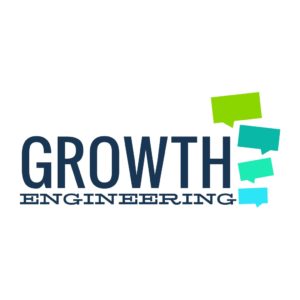Intellectual Capital: What It Is And Why It Matters
A recent research paper [1] makes a very simple argument: financial capital fundamentally relies on intellectual capital. This simple statement has the potential to make an astounding difference to how we think about online learning.

But what is intellectual capital? Read on to find out how you can invest in intellectual capital and shape your company culture to get the most from it!
What Is Intellectual Capital?
Well, first off—what is intellectual capital? Think about your company’s financial capital. This is all the money your company has access to and the valuation of everything it owns.
Intellectual capital is just like this—but instead of money, it’s the total of a company’s knowledge. If you were to take a big syringe and extract all the knowledge from every employee (and every relationship), you’d end up with a huge vat of intellectual capital (not to mention a few traumatized employees).
The Benefit Of Intellectual Capital
But what good does this intellect do? Well—there isn’t a single business in the world which could function without the knowledge locked inside every employee. And, there is a direct relationship between intellectual capital and business success. Just think about how many of the most talented people work for the most important businesses.
Companies like Toyota, Microsoft, and Walmart [2] understand that intellectual capital matters more to business success than anything else. In fact, over $130bn is invested in training each year. [3] This is because businesses understand that investment in intellectual capital matters.
Intellectual Capital And Online Learning
Traditionally, training departments invest in training delivery. The focus is on delivering knowledge to team members, rather than creating a dialogue with employees. Yet, ironically, it’s the employees who have all of a company’s knowledge stored away in their brains. This is why up to 70% of learning initiatives fail.
Only 37% of employees think of formal training as essential. Yet, almost 90% think that social knowledge sharing is absolutely vital in order to thrive in the workplace. Clearly, if you want to guarantee learning success—you need to get social. [4]
So, let’s ask the big question then. How do you invest in your company’s intellectual capital? An Oxford University academic [5] suggests that intellectual capital relies on social relationships. These relationships let people come together and share information. This makes it easier to share knowledge and boosts the company’s intellectual capital. The best part is that when people share old information, they also create new information. Learners are at their knowledge creating best when the workplace is a circus of social activity!
How Social Learning Can Grow Intellectual Capital
With employee turnover at a staggering average of 15% [6]—it’s becoming a big problem. It doesn’t just create man-power shortages—it means the organization is constantly losing knowledge. But, this knowledge loss isn’t inevitable. There are things that you can do to make sure that knowledge is shared effectively and kept safely within the company.
1. Create Discussion Groups
One of the most effective solutions is to use your Learning Management System (LMS) to keep knowledge secure! You can provide a space for users to share their unique knowledge with other team members. This lets you keep an online record of company knowledge and lets you share it with the team.
2. Focus On Informal Learning
The 70:20:10 model suggests that 70% of learning is done socially and informally, whilst only 10% is delivered through formal training content. If you want to invest in intellectual capital, you need to invest in social learning. The very best social learning platforms make sharing knowledge between employees even easier.
3. Identify Subject Matter Experts
With this cutting-edge technology, training managers can identify Subject Matter Experts. This means that when team members have questions, they know exactly who to ask. This is a simple way to invest in social learning and to encourage every team member to share their knowledge. This social learning helps everyone become more proficient, more productive and more profitable.
4. Build A Sense Of Ownership
An LMS that has social learning built in, not just bolted on, makes user-generated content easy to share. It makes learning creation intuitive for the learners with features like a social newsfeed and insight groups. When learners are able to partake in the creation of company knowledge, it gives them a sense of ownership and helps them feel valued—but it also contributes to the company’s intellectual capital and helps it to grow.
5. Create More Effective Content
When learners create learning content it has the added benefit of making the learning as relevant as possible. This helps to relieve the burden of learning managers—who no longer need to churn out course upon course of ineffective eLearning. Rather, they work with learners to create a company culture that creates relevant learning organically.
The key to real business success is to build your company’s intellectual capital. Unless you have a way of capturing and curating the knowledge locked within your people, that’s going to be a difficult task! Luckily, a social learning platform might just be the key to unlocking that knowledge. Find out just how mind-bendingly super social learning can be by downloading our white paper!
References:
- Reaping benefits from intellectual capital.
- “Intellectual capital in organizations”
- Spending on Corporate Training Soars: Employee Capabilities Now A Priority
- 7th Annual Learning in the Workplace Survey: Results
- Social Capital, Intellectual Capital, and the Organizational Advantage
- What is the ideal employee turnover rate?

Originally published at www.growthengineering.co.uk.

